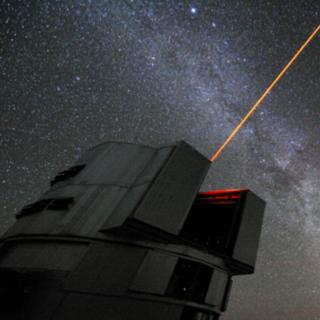Bibcode
Monelli, M.; Bernard, E. J.; Gallart, C.; Fiorentino, G.; Drozdovsky, I.; Aparicio, A.; Bono, G.; Cassisi, S.; Skillman, E. D.; Stetson, P. B.
Bibliographical reference
Monthly Notices of the Royal Astronomical Society, Volume 422, Issue 1, pp. 89-105.
Advertised on:
5
2012
Citations
26
Refereed citations
23
Description
We investigate the variable star content of the isolated, Local Group,
dwarf spheroidal (dSph) galaxy Cetus. Multi-epoch, wide-field images
collected with the Very Large Telescope/Visible Multiobject Spectrograph
camera allowed us to detect 638 variable stars (630 RR Lyrae stars and
eight anomalous Cepheids), 475 of which are new detections. We present a
full catalogue of periods, amplitudes and mean magnitudes. Motivated by
the recent discovery that the pulsational properties of the RR Lyrae
stars in the Tucana dSph revealed the presence of a metallicity gradient
within the oldest (>rsim10 Gyr old) stellar populations, we
investigated the possibility of an analogous effect in Cetus. We found
that, despite the obvious radial gradient in the horizontal branch and
red giant branch morphologies, both becoming bluer on average for
increasing distance from the centre of Cetus, the properties of the RR
Lyrae stars are homogeneous within the investigated area (out to
r˜ 15 arcmin), with no significant evidence of a radial gradient.
We discuss this in connection with the star formation history previously
derived for the two galaxies. The observed differences between these two
systems show that even systems this small show a variety of early
evolutionary histories. These differences could be due to different
merger or accretion histories.
Related projects

Galaxy Evolution in the Local Group
Galaxy formation and evolution is a fundamental Astrophysical problem. Its study requires “travelling back in time”, for which there are two complementary approaches. One is to analyse galaxy properties as a function of red-shift. Our team focuses on the other approach, called “Galactic Archaeology”. It is based on the determination of galaxy
Emma
Fernández Alvar